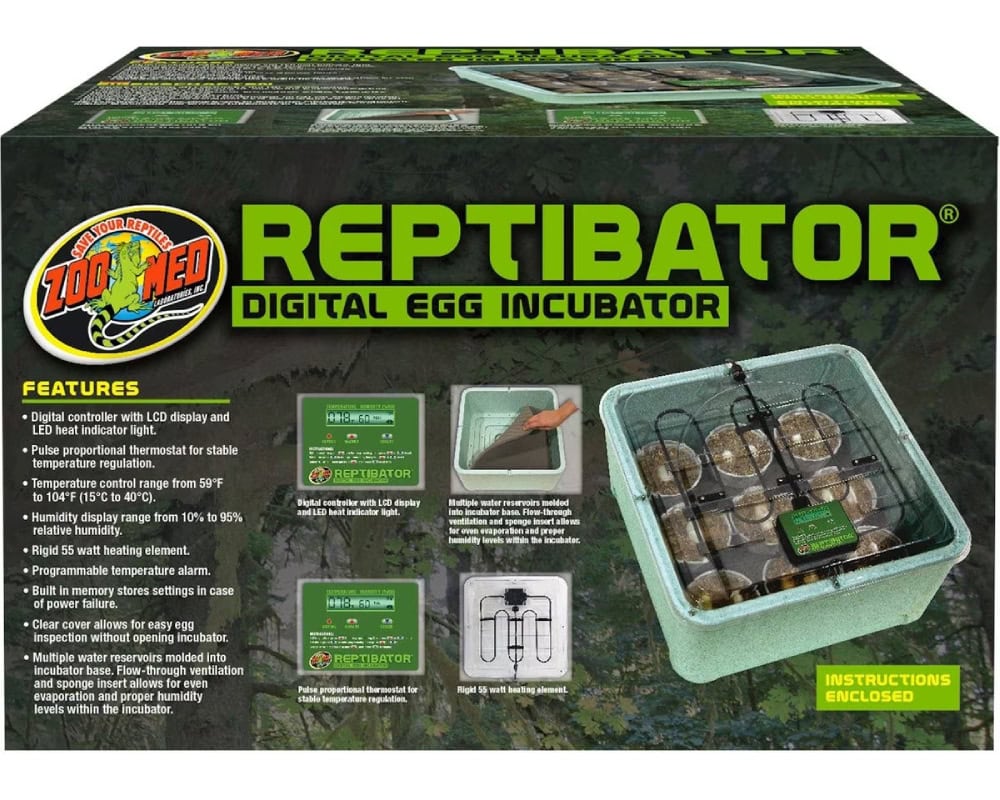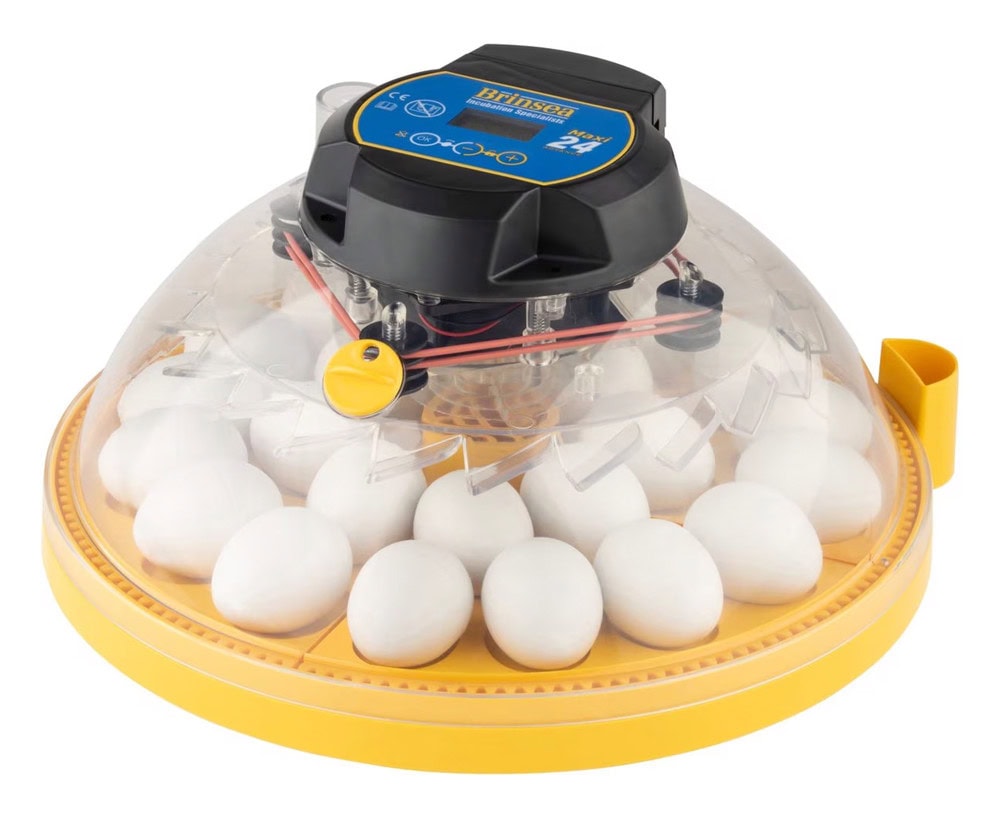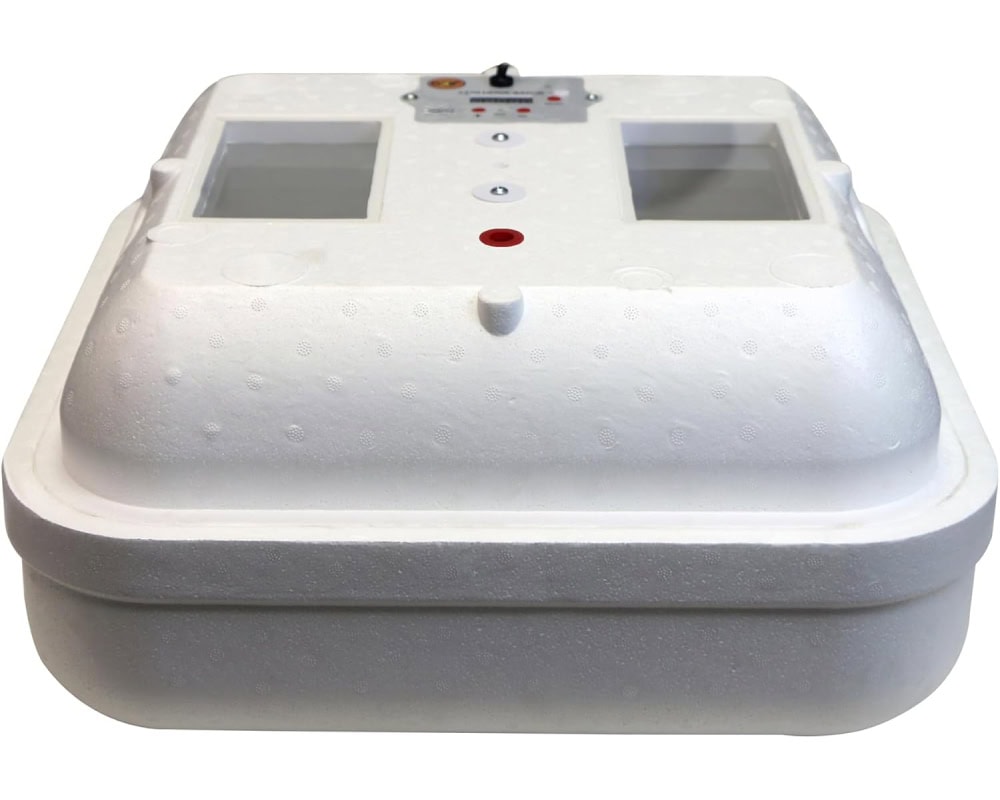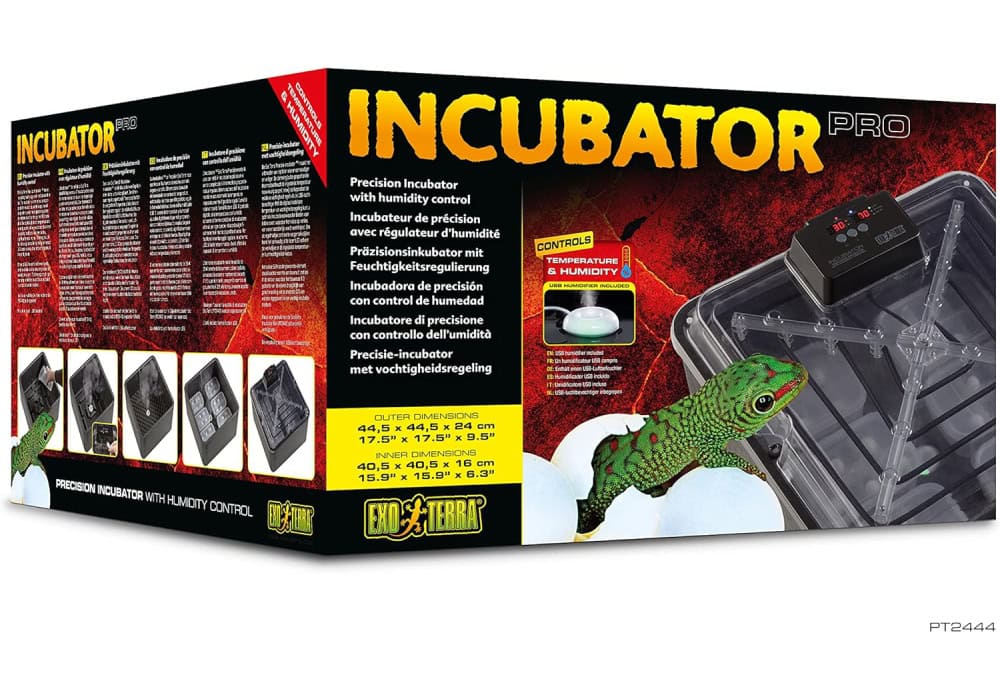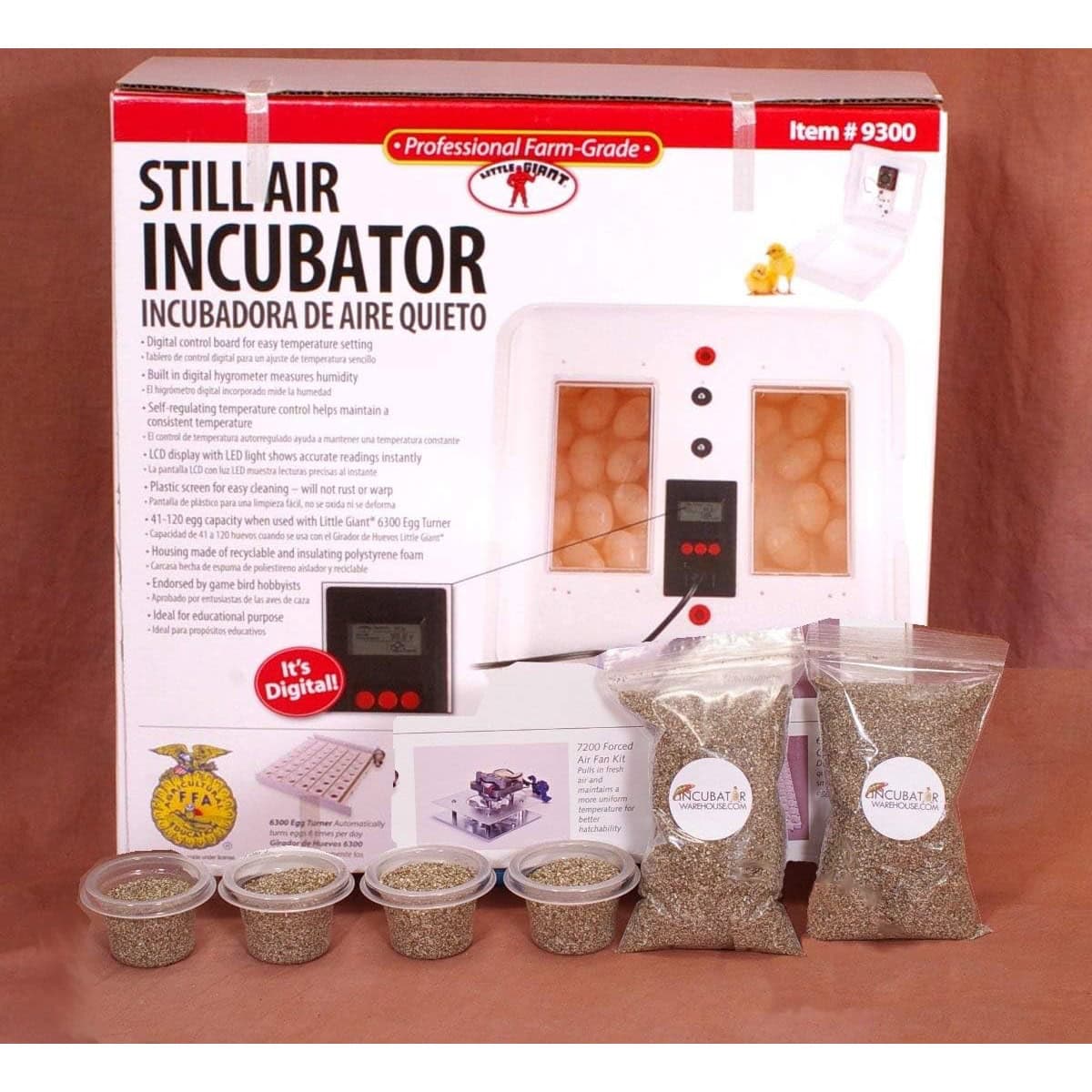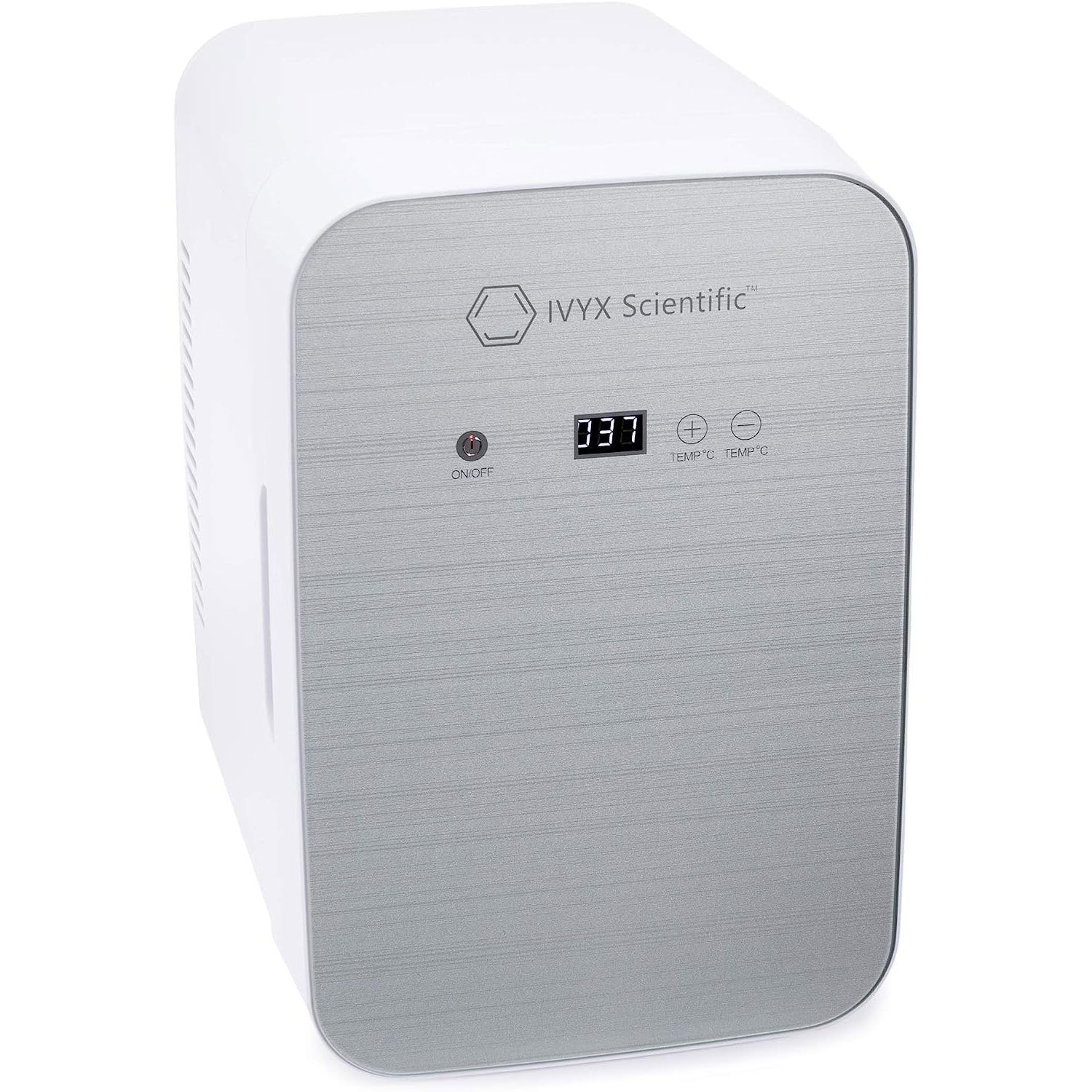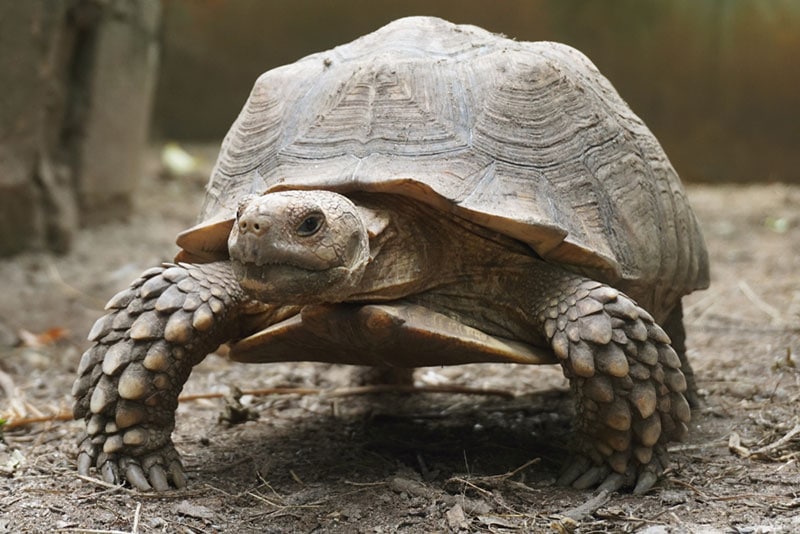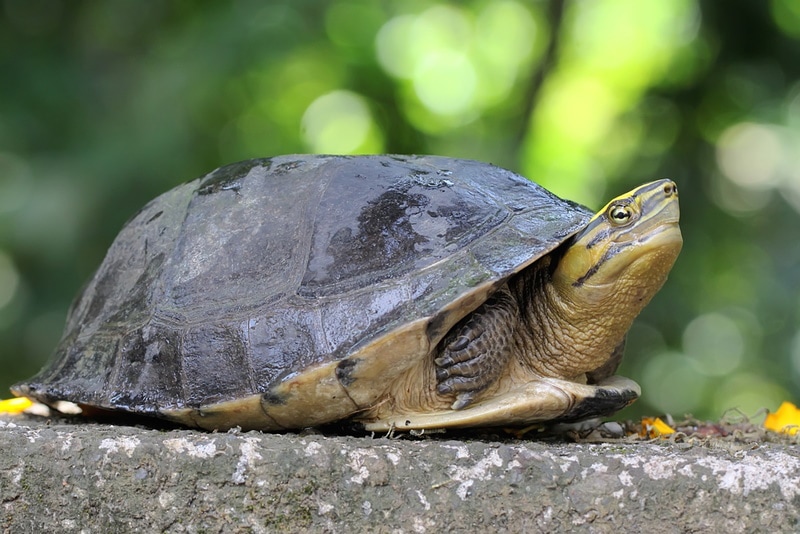8 Best Tortoise Egg Incubators – 2024 Reviews & Top Picks

Updated on
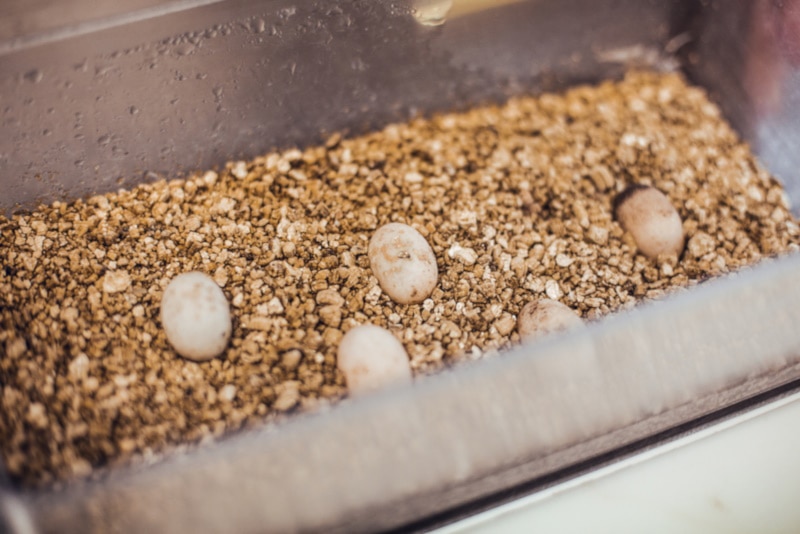
Most people prefer to adopt fully-grown tortoises from shelters, breeders, and stores. However, if you’re fascinated by how reptile eggs hatch, you’re probably thinking about buying an incubator to grow your own clutch. The good news is—these devices don’t cost a fortune and only take 10–15 minutes to set up. On the downside, there are so many options available that you might get lost trying to find the right one.
Incubators come in different shapes and sizes, not to mention have different settings, controls, and features. So, which one do you buy? Well, you can always rely on our experts to help you with the choice! The following list includes eight market-leading devices perfect for hatching tortoise eggs. So, check the reviews, read our Buyer’s Guide, and we’re confident you’ll find the ideal incubator for your shelled buds!

A Quick Look at Our Top Picks of 2024
| Rating | Image | Product | Details | |
|---|---|---|---|---|
| Best Overall |
 |
Zoo Med Reptibator Egg Incubator |
|
Check Price |
| Best Value |
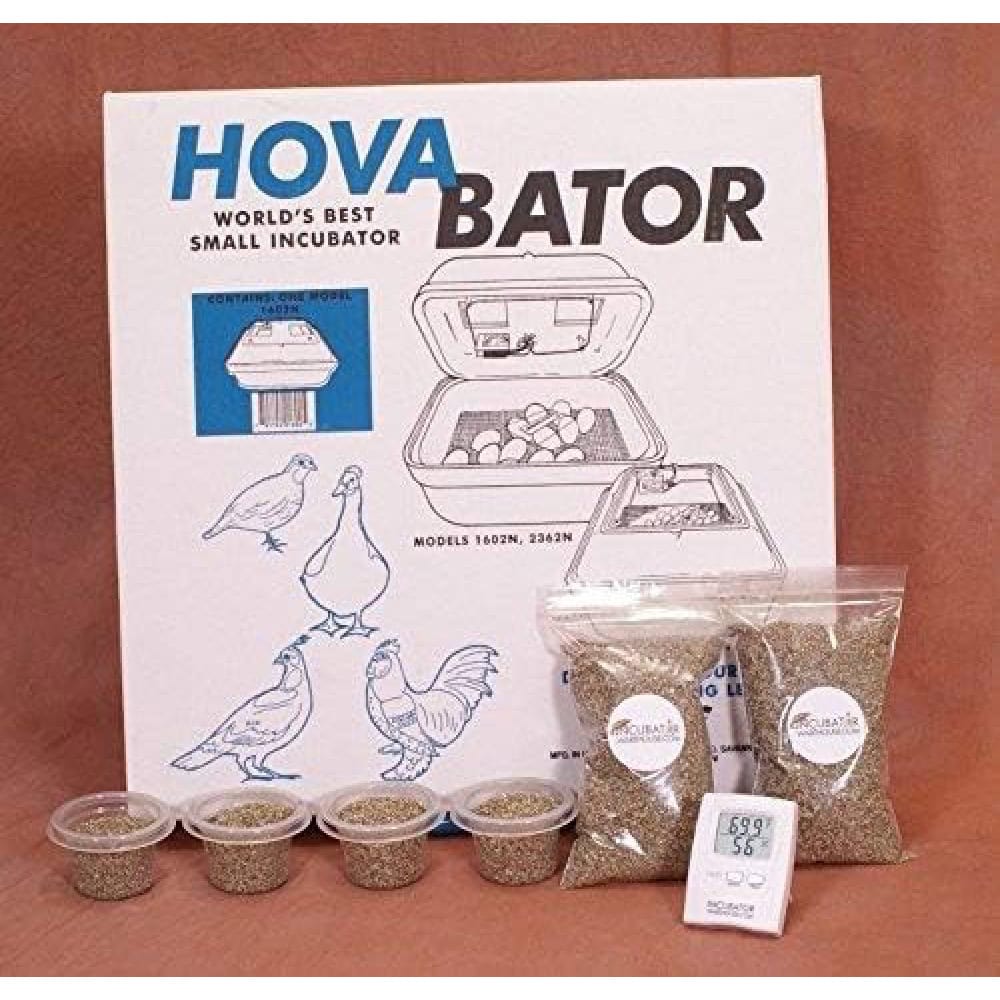
|
Hova-Bator Still Air Egg Incubator |
|
Check Price |
| Premium Choice |

|
Brinsea Maxi 24 Advance Automatic 24 Egg Incubator |
|
Check Price |
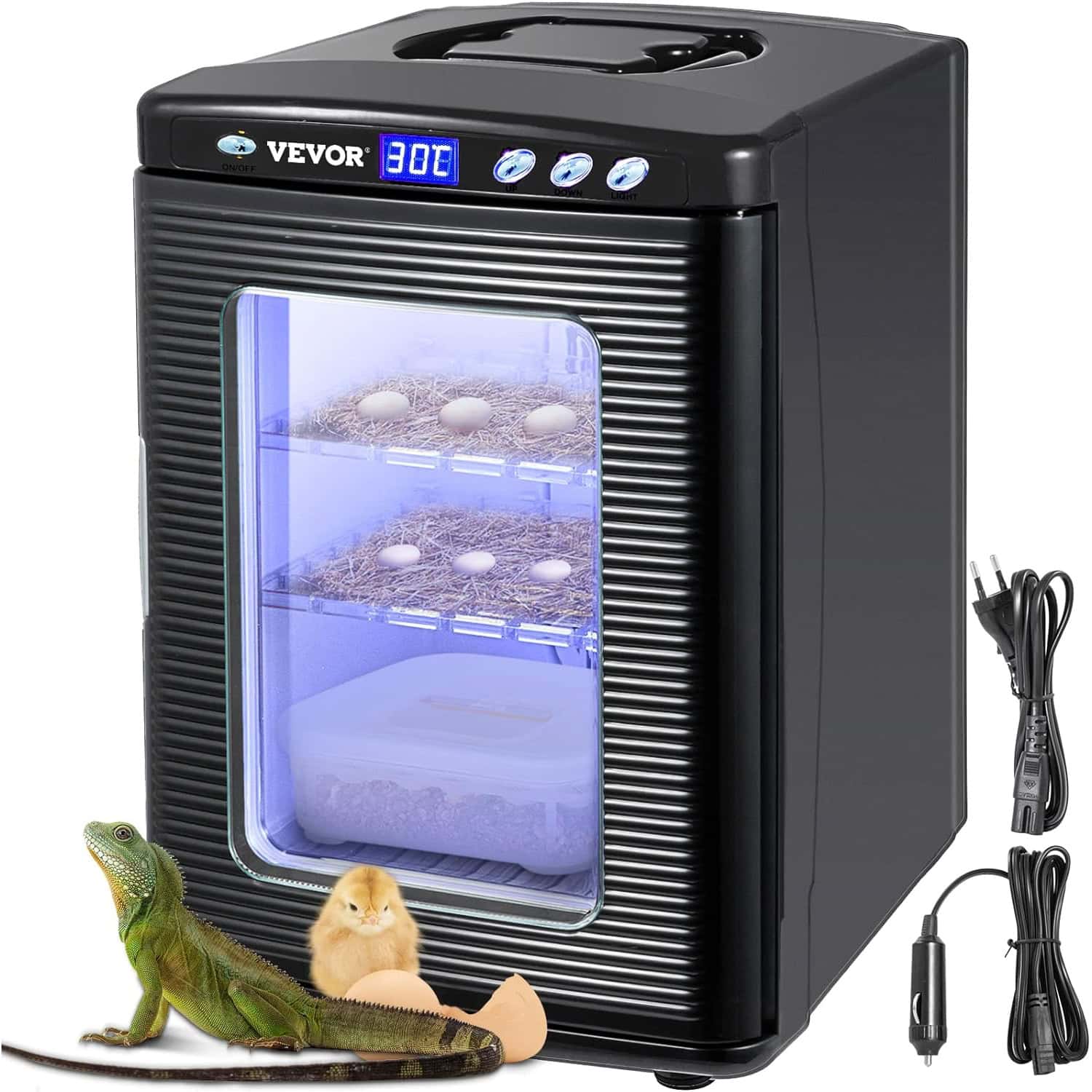
|
Happybuy Reptile Incubator |
|
Check Price | |

|
GQF Electronic Thermostat Hova-Bator |
|
Check Price |
The 8 Best Tortoise Egg Incubators
1. Zoo Med Reptibator Egg Incubator – Best Overall
| Weight: | 2 pounds |
| Dimensions: | 18″L x 18″H x 9.5″W |
| Temp Control: | Yes |
| Humidity Control: | Yes |
Without perfectly calibrated temperature and humidity, tortoise eggs won’t be able to hatch properly. But you won’t have to worry about that with the Zoo Med Reptibator egg incubator. With this device, you can set the desired temps (59–104 degrees F) and moisture levels (10% to 95%) via the built-in buttons and knobs and monitor everything through the LED display. Also, thanks to the onboard memory, the incubator will remember your settings even after a power outage.
Add an easily programmable alarm for the temperature and a quick, responsive UI, and you’ll see why we picked this device as the best overall tortoise egg incubator. The only downside: for some reason, the temperature gauge always reads 2–3 degrees higher; the same goes for the hygrometer. To tackle this, you can either buy third-party meters or just bump up the settings a bit.
- Accurate humidity controls
- Programmable temp alarm
- Built-in memory feature
- Perfect for tortoises
- The gauges read a bit higher
2. Hova-Bator Still Air Egg Incubator Kit for Reptiles – Best Value
| Weight: | 4.3 pounds |
| Dimensions: | 19″L x 19″W x 5.5″H |
| Temp Control: | Yes |
| Humidity Control: | No |
Reptiles (tortoises included) need a hatching medium for proper development (substrate), and you’ll get plenty of that with this Hova-Bator still air egg incubator kit. The package also includes cups that you can fill up with the substrate, along with a standalone thermal/hygrometer. The actual incubator deserves our praise as well. First, it will only take 5–10 minutes to set up and start using it. Secondly, it’s a low-wattage unit that won’t make the energy bill go through the roof.
And with intuitive controls, an informative LED display, and two small windows for monitoring, you’ll get the best tortoise egg incubator for the money. As for the cons, there’s no humidity controller on this device (it can only adjust the temps). Furthermore, while Hova-Bator does a decent job of keeping the temperature steady, it does sometimes go up and down a degree or two. So, keep your eyes on the LED!
- Available at an affordable price
- Low-wattage, high-efficiency device
- Intuitive, very easy to set up
- Generous package with extras
- The temps tend to fluctuate
3. Brinsea Maxi 24 Advance Automatic 24 Egg Incubator – Premium Choice
| Weight: | 4 pounds |
| Dimensions: | 12” x 12” x 8” |
| Temp Control: | Yes |
| Humidity Control: | No |
The Brinsea Maxi 24 Advance Automatic 24 Egg Incubator is an excellent choice for someone who is very serious about hatching. If you are a professional on the subject, this might just be exactly what you need to have successful calculating this.
This particular model is our premium selection because it has impeccable features, and its price reflects that. We don’t recommend this model for novice breeders due to the price alone, but it can be a very good option for the right person.
This incubator has clear walls so you can have complete visibility as the eggs progress. Since you will be using it for reptile eggs, they will be much smaller than traditional chicken eggs, though this incubator can hold eggs of various sizes.
You can take advantage of the flexible mix and match egg quadrant insert system, with two different sizes included! The menu uses digital controls with temperature alarms, displays, and countdowns until hatching time. It has a programmable, automatic turning with auto stop. It has truly all of the features you would want, and excellent customer reviews!
- Complete visibility
- Flexible egg quadrant system
- Temperature alarm and display
- Pricey
- Not made specifically for reptiles
4. Happybuy Reptile Incubator Scientific Lab Incubator
| Weight: | 18.5 pounds |
| Dimensions: | 13″L x 15.1″W x 19″H |
| Temp Control: | Yes |
| Humidity Control: | No |
Tortoise fans that prefer upright incubators will find this device to be worth their attention. It’s quite heavy compared to all the other units on the list but makes up for that with a handle for easy transportation. Plus, it comes packed with not only an AC but also a DC cord. That means you can keep it up and running even when driving in a car. The shelves are removable, by the way, and very easy to clean. Together, they create three platforms for the eggs.
The transparent PVC door is probably the biggest selling point of the Happybuy reptile incubator. It ensures a tight seal and lets you see every single egg in great detail without having to open the door. Sadly, while the temperature can be fine-tuned (41–140°F), there are no controls for humidity. Instead, the incubator has a water tray. But it tends to leak sometimes.
- Features both AC and DC cords
- PVC door for better visibility
- Includes removable shelves
- Heavier than most incubators
- Leaks when not set up properly
5. GQF Electronic Thermostat Hova-Bator
| Weight: | 1.18 pounds |
| Dimensions: | 15.7″L x 15.7″W x 12.8″H |
| Temp Control: | Yes |
| Humidity Control: | No |
Next up, we have an all-around solid incubator that does a great job of helping tortoise eggs hatch. It’s built from premium-quality Styrofoam and doesn’t let any hot air out or cold air in, ensuring a steady temperature inside of the “chamber”. Speaking of the design, this is one of the most lightweight devices on the market and weighs only 1.18 pounds (that’s approximately 0.5 kilograms).
More good news: GQF Electronic Thermostat Hova-Bator features an air fan that you can turn on and off depending on what kind of reptile you’re working with. Unfortunately, it’s a bit too loud for comfort (almost as noisy as a computer fan). Furthermore, the LED display doesn’t always show the correct temperature. But, other than that, this is a solid incubator.
- Premium Styrofoam for insulation
- Customizable fan for circulation
- Lightweight, easy to carry around
- Digital readout lacks accuracy
- The built-in fan is rather loud
6. Exo Terra Precision Incubator Pro for Reptile Terrariums
| Weight: | 3.9 pounds |
| Dimensions: | 17.5″L x 17.5″W x 9.4″H |
| Temp Control: | Yes |
| Humidity Control: | Yes |
Digital temperature and humidity controls (up to 95%), a big, easy-to-read LED screen (shows in both Fahrenheit and Celsius), and a decent size: that’s what you’ll get with the Exo Terra Precision incubator. With this device, you should also expect 55 watts of radiant heating, accurate dimming, and steady temps for long hours. This is achieved thanks to the thicker-than-average Styrofoam walls.
They keep the incubator going even after a short power outage. Air circulation doesn’t always work as it should in this device, though. As a result, you might get mold buildup on the eggs, which is bad news for the tortoises. This rarely happens, of course, but it can still be a huge con, especially for first-time incubators that don’t know their way around hatching.
- Accurate dimming and heating
- Prevents temperature deviations
- Power failure-safe design
- Prone to mold buildup
- No proper circulation
7. Little Giant 9300 Still Air Egg Incubator Kit for Reptiles
| Weight: | 4.5 pounds |
| Dimensions: | 19″L x 18″W x 5.8″H |
| Temp Control: | No |
| Humidity Control: | No |
The best thing about the Little Giant 9300 Still Air Egg Incubator is how easy it is to keep it clean. This device provides quick and easy access to nooks and crannies and will only take minutes to make it look brand-new. Also, the incubator has tall walls (for a unit its size), which makes it harder for hatched tortoises to climb over and escape. The material quality leaves a lot to be desired, though: the Little Giant is cheap and easy to break.
More importantly, you won’t be able to control the temperature, let alone humidity. Poor heat retention is another downside that some buyers have to deal with.
- Takes little effort to clean
- Tall walls keep the reptiles in
- Crafted from cheap materials
- No temperature control
- Weak heat retention
8. Mini Lab Incubator/Refrigerator
| Weight: | 8.4 pounds |
| Dimensions: | 8″L x 11″W x 12″H |
| Temp Control: | Yes |
| Humidity Control: | No |
Here, we have another upright device that you can use for incubating or refrigerating a long list of eggs, including, of course, those that belong to tortoises. However, the device is a bit small for tortoise eggs (if you’re planning on hatching more than a few at a time). The exterior design is quite fancy and minimalistic, though. The wide temperature control range is another pro: it goes from 32 to 149 degrees Fahrenheit.
The problem is—the Mini Lab Incubator/Refrigerator doesn’t perform that well when the outside temps rise above the average. Some buyers also report minor quality control and assurance issues. We’re talking about late deliveries, low-quality packaging, and overall lackluster performance.
- Excellent temperature control range
- Eye-catching incubator design
- Not that big for egg incubation
- Poor performance in high heat
- Quality control issues

Buyer’s Guide: Choosing the Best Reptile Egg Incubator
How Do Reptile Egg Incubators Work?
In the wilderness, the eggs of reptiles and birds need to stay warm to hatch. This applies to tortoises, turtles, lizards, chickens, and turkeys. Humidity also plays a key role in the process. So, essentially, an incubator is a device that’s capable of maintaining pre-set temps and humidity levels until the reptile babies grow big and crack open their shells. Now, if you buy a cheap incubator, you’ll only get a small Styrofoam or plastic box that can only hold the eggs, nothing more.
A more expensive unit, in contrast, will have a thermometer, hygrometer, and a LED screen for monitoring the current temperature and humidity levels. And if you pay a bit extra, the device will also allow changing the settings. This way, you’ll be able to make quick adjustments depending on the reptile species. As for the best incubators, they come with automatic controls and various pre-sets for a quick setup.
Can I Use a Chicken Egg Incubator for My Tortoise?
The short answer is no, that’s not recommended. Technically, yes, it’s possible; however, you won’t get great results if you put tortoise or turtle eggs in an incubator that was designed for chickens. And there are two reasons for that. First, the required humidity levels for poultry are very much different from that of reptiles. Chicks, turkeys, and ducks can easily handle extreme humidity, yet reptiles will be under a lot of stress if the levels go over 70–75%.
Tortoises prefer it when it’s a bit higher but still lower than 90%. In any case, most chicken incubators don’t have controls for moisture levels. As for the second reason, birdies won’t develop properly unless turned regularly. That’s why chicken incubators come with a mechanism that takes care of that. However, as you’ve probably guessed, turning reptile eggs will damage them severely.
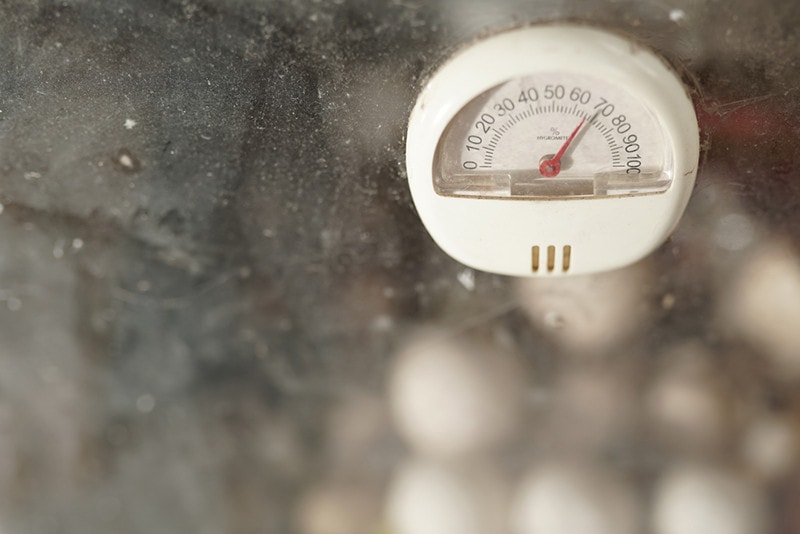
Finding the Perfect Incubator: A Detailed Guide
- Check the size – Before you buy an incubator, make sure it’s of the right size. Otherwise, the eggs simply won’t fit in there. And you can’t just order any reptile incubator, either: for example, geckos have smaller eggs compared to pythons. As for tortoise eggs, they’re pretty big. If you need an analogy, think of a Ping-Pong ball: that’s roughly how large the eggs are going to be. But if you’re doing this as a hobby, buying the biggest incubator won’t be necessary.
- What about the design? – Incubators can be vertical and horizontal or have a “chest” or “upright” design. So, which one should you choose? It depends on your preferences: there aren’t any big pros or cons to any of these designs. What you should do is check the available space in your room. That will help decide what kind of incubator to get for the tortoise eggs. Upright incubators look like fridges, while the chest ones resemble regular containers.
- Ease of cleaning – First-time buyers might not necessarily think of this, yet it’s very important to get a device that won’t take much effort to clean. Removable shelves, easy access to all the corners, and durable materials: that’s what you should look for. Devices crafted from ABS plastic are usually the easiest ones to clean. Also, buy a pack of soft cloth, some rubber gloves, a can of glass cleaner, and a disinfecting product.
- Visibility/monitoring – Tortoise eggs need to be constantly monitored for signs of fungal growth, slow development, or deformation. For that, you’ll need an incubator that provides decent visibility. You can, of course, lift the cover and take a quick look at the tortoise babies, but that might disturb the temperature and humidity levels. Instead, look for a device that lets you see what’s going on in there through a window. Or get one with a transparent door/lid.
- Temperature controls – We can’t stress enough how important it is to keep the right temps inside of an egg incubator. You’ll only be able to achieve good results if you’re able to control it. Besides, no matter how expensive your device is, the temps will go up or down a bit over time. That’s why it’s vital for the incubator to have accurate controls. Better yet, invest in an autonomous unit that can keep the levels steady.
- Humidity controls – The deal here is the same as with the temperature. Sadly, many incubators don’t have any buttons, knobs, or sliders for controlling humidity. Sometimes, they have a tank that you can add water in to boost moisture levels. However, we would recommend paying a bit extra to get built-in controls. In the long run, you’ll appreciate the ease of use and effectiveness of this design.
- The cooling system – This mechanism has one simple, yet important goal: to prevent the temps inside the incubator from reaching dangerously high levels. This feature is a must if you live somewhere in Florida, Arizona, or another hot state. Otherwise, you might lose an entire clutch of tortoise eggs to heat! Oh, and most manufacturers add a fan into the incubator so that it can keep the air circulating.

Getting the Incubator Ready for the Eggs
And here’s what you’ll need to do before you add the tortoise egg:
- Add substrate. Earlier, we talked about the differences between hatching chicken and reptile eggs. Well, along with humidity levels and turning, there’s another crucial factor: tortoise babies need substrate to hatch. Without this mold-resistant, porous layer, they’ll have a hard time growing into big, strong slowpokes. So, what is this substance, anyway? It can be gravel, sand, moss, or even carpet. As long as it keeps reptiles dry and healthy and breaks down waste, you can use it.
- Set the right temperature. The preferred temps for various tortoise species will be a bit different, but, for the most part, 85–90°F is a safe place to start. The temperature is an incredibly important factor when hatching reptiles because it has a huge impact on the sex of the babies. That’s right: depending on how high or low it is at a specific moment, you’ll either get a boy or a girl! This is called environmental sex determination (ESD).
- Check the humidity levels. Once you add the substrate and enter the right temperature settings, ensure that the humidity levels are comfortable for the tortoise eggs. If you’re not 100% sure about the correct moisture levels, consult with a veterinarian or get in contact with a non-profit organization like the Humane Society. Generally speaking, 60–90% is the “sweet spot” for tortoises.
How Long Do Tortoises Take to Hatch?
If this is your first time trying to hatch tiny tortoises from eggs, you’re probably a bit worried that they haven’t hatched yet. Please remember that these reptiles take a long time to develop and break through their shells. For example, if it’s a Russian tortoise, it will need up to 80 days to hatch or even more. But, if the temperature is high enough, that might happen much sooner (in 50–60 days).
On average, professional breeders give reptile eggs 8–10 weeks to incubate before hatching. The exact time depends on the species, the environment/conditions (temps, humidity levels), and other factors. The important thing here is to not rush the process but rather let it go on naturally.
A quick note: in the wilderness, tortoise babies usually emerge in late August/early September, but sometimes, they wait until the next spring to hatch.

Conclusion
Looking for the best incubator for your tortoises? You’ll get it with Zoo Med’s Reptibator! It allows changing the temperature and humidity, has a memory feature, and works like a charm. With Hova-Bator, you’ll get the best value: this device comes packed with lots of useful extras and takes no effort to use. And if you’re serious about hatching eggs, consider Brinsea Maxi 24 Advance Automatic 24 Egg Incubator.
As we learned from the reviews, this incubator can house 90 eggs and has lots of cool features. Take your pick!
Featured Image Credit: Aitor Lamadrid Lopez, Shutterstock



